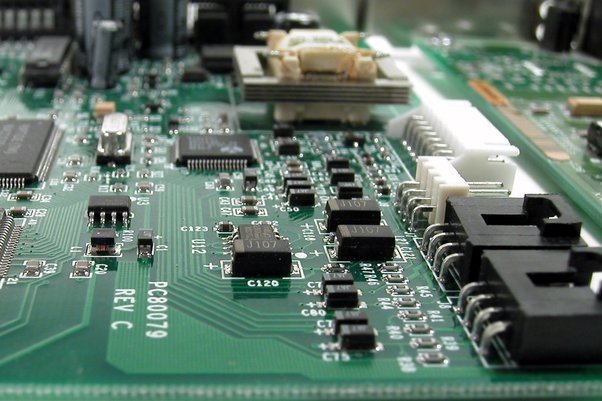Electronic Engineering: The Best Technology in Future

Electronic engineering, a cornerstone of modern technology, encompasses the study and then application of electrical systems. This field is pivotal in designing and then developing electronic devices that are integral to our daily lives. From smartphones to complex communication systems, electronic engineering plays a critical role in shaping the future of technology.
What is Electronic Engineering?

Electronic engineering is a branch of electrical engineering that focuses on the development and then application of electronic devices and systems. This discipline involves the design, testing, and maintenance of electronic circuits and components. It encompasses various subfields, including telecommunications, control systems, signal processing, and then microelectronics.
Key Areas of Electronic Engineering

1.Telecommunications Engineering
Telecommunications engineering deals with the transmission of information across various channels. This subfield is essential in designing systems for communication, including telephones, satellites, and the Internet. Engineers in this area work on improving signal strength, reducing noise, and then ensuring efficient data transmission.
2.Control Systems Engineering
Control systems engineering involves designing and implementing systems that control and regulate the behavior of devices and then processes. This area is crucial in automation, where engineers create systems that can also operate independently without human intervention. Applications include manufacturing processes, robotics, and then automotive systems.
3.Signal Processing
The main goals of signal processing are the analysis, modification, and then synthesis of signals, including sound, pictures, and then data from science. Engineers in this field develop algorithms and then techniques to process signals efficiently, which is vital in applications like digital image processing, audio engineering, and then communications.
4.Microelectronics
Microelectronics involves the design and then manufacture of extremely small electronic components. This subfield is essential in developing integrated circuits (ICs), which are the building blocks of most electronic devices. Advances in microelectronics have led to the miniaturization of technology, enabling the production of compact and then powerful gadgets.
The Role of an Electronic Engineer

Electronic engineers play a critical role in advancing technology. They are responsible for designing and developing electronic equipment, ranging from simple circuits to complex systems. Their duties include:
Circuit Design: Creating schematics for electronic circuits that fulfill specific functions.
Prototyping: Building and then testing prototypes to ensure designs work as intended.
System Integration: Combining different electronic components to create a cohesive system.
Testing and Debugging: Identifying and fixing issues in electronic systems to ensure reliability and efficiency.
Maintenance: Providing ongoing support and maintenance for electronic devices and systems.
Educational Path and Skills Required
Educational Requirements
To pursue a career in electronic engineering, a solid educational foundation is essential. Typically, this involves:
Bachelor’s Degree: A four-year undergraduate program in electronic engineering or a related field. Coursework includes subjects like circuit analysis, digital systems, and then electromagnetics.
Master’s Degree: For advanced positions, a master’s degree may be required, focusing on specialized areas such as VLSI design or wireless communication.
Doctorate: For those interested in research or academic careers, a Ph.D. in electronic engineering is advisable.
Key Skills
Successful electronic engineers possess a blend of technical and soft skills, including:
The capacity to examine intricate issues and then create workable answers is known as analytical thinking.
Attention to Detail: Precision in designing and then testing electronic systems.
Problem-Solving Ability: Technical problem-solving and then troubleshooting expertise.
Communication Skills: Ability to convey technical information clearly to non-specialists.
Teamwork: Collaboration with other engineers and then professionals to achieve project goals.
Emerging Trends in Electronic Engineering

The field of electronic engineering is continually evolving, driven by technological advancements and then societal needs. Some of the emerging trends:
1.Internet of Things (IoT)
The IoT revolution is transforming how devices interact and then communicate. Electronic engineers are developing smart devices that can also collect, process, and then exchange data seamlessly. Smart homes and industrial automation are just two examples of applications.
2.Renewable Energy
As the world shifts towards sustainable energy solutions, electronic engineers are at the forefront of designing systems that harness renewable energy sources. This includes developing efficient solar panels, wind turbines, and then energy storage systems.
3.Artificial Intelligence (AI)
AI is becoming increasingly integrated into electronic systems. Engineers are working on embedding AI algorithms into devices, enabling them to perform tasks such as image recognition, natural language processing, and autonomous decision-making.
4. 5G Technology
5G network deployment promises reduced latency and faster data rates. Electronic engineers are crucial in designing the infrastructure and devices that support 5G, paving the way for advancements in mobile communications and IoT applications.
Challenges in Electronic Engineering
Despite its advancements, the field of electronic engineering faces several challenges:
Rapid Technological Change: Keeping up with the fast pace of technological developments requires continuous learning and adaptation.
Complexity of Designs: As electronic systems become more complex, ensuring their reliability and efficiency becomes more challenging.
Environmental Impact: Electronic engineers must consider the environmental impact of their designs and strive to create sustainable and eco-friendly solutions.
Cybersecurity: With the increasing connectivity of devices, ensuring the security of electronic systems is paramount to prevent cyber threats and data breaches.
The Future of Electronic Engineering

The future of electronic engineering is bright, with numerous opportunities for innovation and growth. As technology continues to advance, electronic engineers will play a pivotal role in shaping the future. Key areas of focus will include:
Smart Cities: Developing integrated electronic systems to create smarter, more efficient urban environments.
Healthcare Technology: Innovating medical devices and then other systems to improve patient care and then health outcomes.
Space Exploration: Contributing to the advancement of electronics used in space missions and then satellite technology.
Conclusion
In conclusion, electronic engineering is a dynamic and exciting field that offers endless possibilities for innovation. By staying abreast of emerging trends and overcoming challenges, electronic engineers will continue to drive technological progress and improve the quality of life for people around the world.
Read more: Adobe Artificial Intelligence





